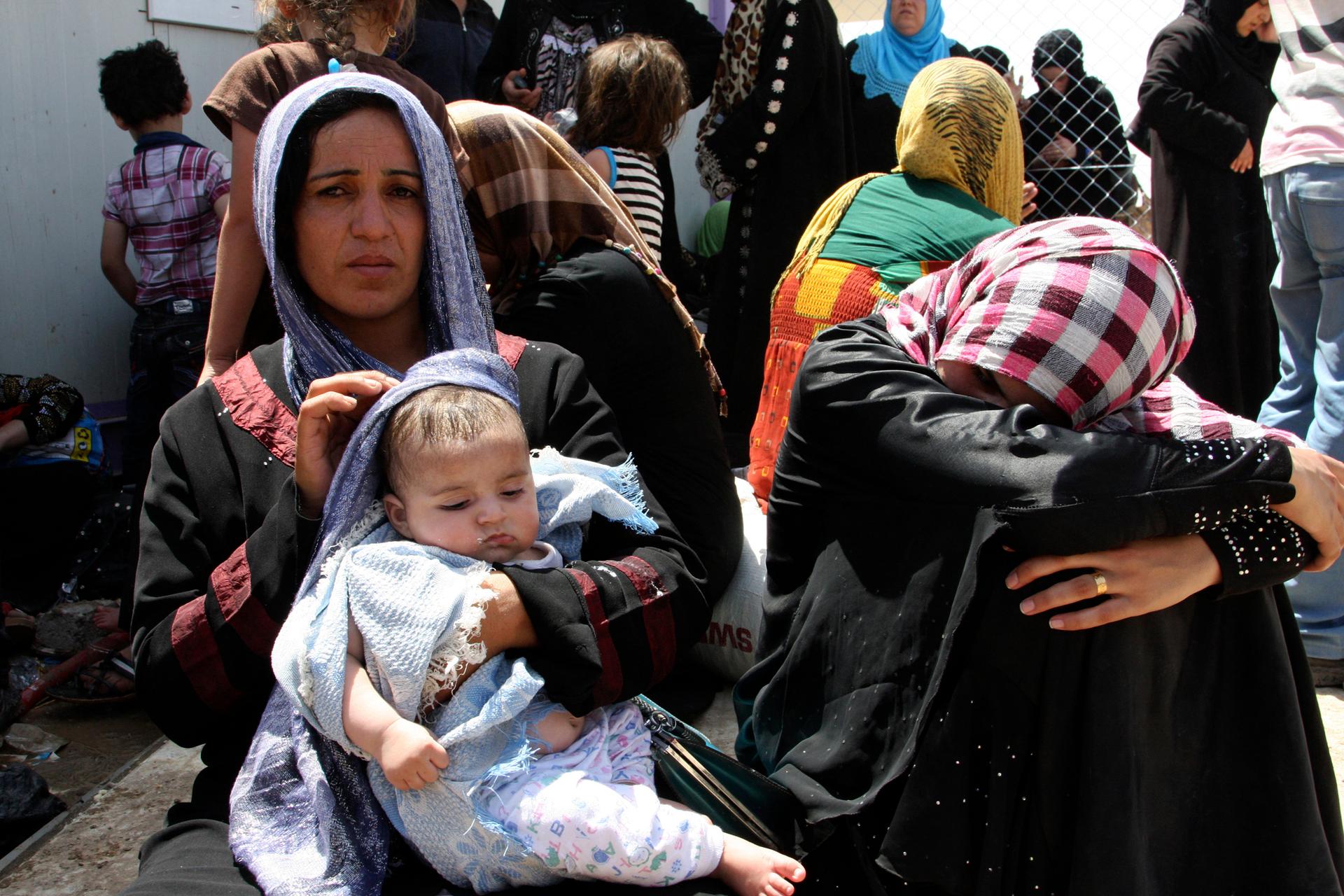Islamic militants have taken over Iraq’s second-largest city
Families fleeing the violence in Mosul wait at a checkpoint on the outskirts of Arbil, in Iraq’s Kurdistan region on June 10, 2014. Radical Sunni Muslim insurgents seized control of most of Iraq’s second largest city of Mosul early on Tuesday.
Iraqi security forces abandoned their posts and have effectively handed control of the northern Iraqi city of Mosul to Islamic extremists from an al-Qaeda off-shoot known as ISIS. Militants from the jihadist Islamic State of Iraq and the Levant, which has also been active in the Syrian civil war, were reported to have struck by the hundreds overnight at police stations, checkpoints and government offices, driving them out of the city.
Some 150,000 people have fled Mosul to seek refuge in Iraqi Kurdistan, where authorities from the regional government are building temporary camps.
Speaking to the BBC, one unnamed resident of Mosul said the whole city had fallen to the militants. “Me and family have taken some refuge with relatives” outside of Mosul, he said. “There are no security services left there now.”
“I don't know if the government will be able to get back control of the city. It's going to be very difficult for the army. Place after place is slipping away, falling under control of the militants,” the man said.
In a video shot from the window of a car as it passes through the city, burned out vehicles and abandoned checkpoints can be seen, along with numerous vehicles ferrying armed men and flying the black flag of Islamic extremist groups. (See video below.)
Pictures purported to show abandoned Iraqi military uniforms discarded during the army's apparently hasty retreat from Mosul spread across social media.
“Where did it all go wrong?” asks Zaid Al-Ali, an Iraqi legal scholar and author of “The Struggle for Iraq's Future.”
“The Iraqi military and its special forces, its regular forces, its police forces, were trained over and over again by the United States military and associated forces in Iraq,” Ali says. “Hundreds of millions of dollars, if not more, were spent on these training programs.”
“What on Earth has happened?” he asks. “Why was a group of around a few thousands fighters capable of taking one of the Middle East's biggest cities in just a matter of a few hours?”
Ali says reports of Iraqi security forces in Mosul abandoning their posts and refusing to fight the militants raise some very uncomfortable questions for the government in Baghdad and those who helped train its security forces.
Iraq's Prime Minster Nouri al-Maliki has asked parliament to declare a state of emergency. ''We have to declare a comprehensive mobilization and the utmost alert in political, financial and popular capabilities to defeat terrorism and bring life to normal in all areas occupied by terrorists, either in Mosul or any other city,” he said.
In practical terms, though, it is not clear what such a declaration would mean, says Ali. “The prime minister already has significant, if not total, control over the security forces. And he is already ignoring a lot of the due process rules that are included in the constitution.”
“It's unlikely to make the armed forces fight any better. It's unlikely to make them perform any better on the battlefield.”
We want to hear your feedback so we can keep improving our website, theworld.org. Please fill out this quick survey and let us know your thoughts (your answers will be anonymous). Thanks for your time!
